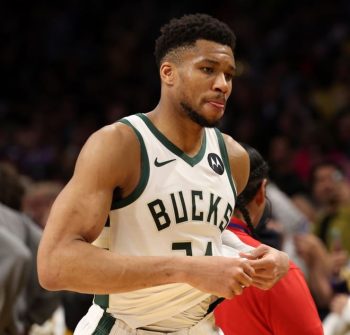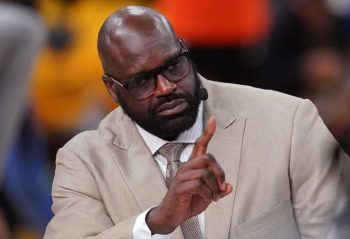NBA
Sleepers In The Southeast Division

As the week continues to unfold here at Basketball Insiders, our team continues to deliver the division-by-division sleeper picks for next season in the NBA.
Unfortunately, this installment has no implications from the week’s big Kyrie Irving-to-Boston news, but it is packed with interesting players nonetheless.
With the Central, Atlantic, and Northwest divisions already broken down, next up is the Southeast Division, where next year’s sleepers are a combination of some brand new and familiar faces.
Let’s get into it.
John Collins — Atlanta Hawks
Despite falling outside of the lottery during this past June’s draft, John Collins has the makings of an immediate factor for the Atlanta Hawks next season.
Even after playing two seasons at Wake Forrest, Collins doesn’t turn 20 years old until Sept. 23, making him young for his experience level. During his last season in college, Collins dominated ACC play, helping the Demon Deacons reach the NCAA tournament behind his 19.2 points and 9.8 rebounds per game.
At 6-foot-10, Collins displays an above-average bounce, registering a 37.5-inch max-vertical leap at the NBA combine. With his ability to move up and down the court fluidly, plus his superb athleticism, Collins figures to be a factor around the rim his rookie season not only scoring the basketball but rebounding it as well.
With the departure of Dwight Howard and Paul Millsap, Collins steps in immediately to a situation where he can receive a good volume of playing time. As a result, the rookie big man should be able to put in the work and get the necessary reps to bring his game to the next level.
Atlanta may have lost a great deal of front court production this summer, but they very well could have gained their next building block for the future with the 19th overall pick in June.
Malik Monk — Charlotte Hornets
Another rookie looking to make waves in the Southeast Division, Malik Monk will immediately look to provide a big time scoring punch for the Charlotte Hornets.
Coming out of the University of Kentucky, Monk slides into the same backcourt as scoring threat Kemba Walker, as he looks to provide the Hornets with a 1-2 scoring punch for years to come.
During his lone collegiate season, Monk proved his ability to score in bunches, eclipsing the 30-point plateau on four occasions last year. Not afraid of the national spotlight either, Monk poured 47 points on the eventual national champion North Carolina Tar Heels during an early-season contest.
With his combination of high-volume scoring and plus athleticism, Monk will look to open up the Hornets’ offense next season for other players who thrive in the lane, like Michael Kidd-Gilchrist and Dwight Howard.
As Charlotte eyes up a playoff spot in the weakened Eastern Conference next season, Monk, even as a rookie, should be able to provide his new team with a few crucial buckets along the way to help their cause.
Mario Hezonja — Orlando Magic
Through the first two years of Mario Hezonja’s career, his production has been rather disappointing for a former top-five draft pick. But with next season being a make or break it year for the 22-year-old guard, expect to see an uptick in his numbers.
When Hezonja was drafted by Orlando, the scouting report on the Croatian swingman read that he was an apt shooter from beyond the arc, and could jump through the gym.
Well, through 144 career games Hezonja’s numbers haven’t necessarily reflected the hype he held on draft night. Averaging just 5.5 points and 2.2 rebounds over those games, and shooting 32.7 percent from the perimeter, Hezonja has struggled to make an impact for the Magic.
Subpar defense and inconsistency in his offense led to Hezonja being in and out of the rotation through the first two years down in Orlando. But, with new management on board, at the very least the team will be looking to up their former lottery pick’s value in hopes of getting something — anything — in return for him.
Even in the weakened East, the Magic don’t seem to possess the firepower necessary to make the playoffs next season. As a result, lineup tinkerings and giving players like Hezonja one last shot seem to slide in perfectly as the general theme for next season.
If Hezonja can harness the shooting ability he was projected to have when he was drafted, next season could finally be the year he breaks through. If not, his NBA career could be drawing its final curtain sooner than he may have thought.
James Johnson — Miami HEAT
On the heels of a career year, James Johnson is looking to ride his new contract into an entirely new season with the Miami HEAT.
Following his performance for Miami last season, president Pat Riley and the HEAT front office rewarded the 31-year-old journeyman with a four-year $60 million deal. But with a new deal may not also come with a new role for Johnson.
Despite appearing in 76 games last season, Johnson only broke the starting lineup five times. This isn’t necessarily a bad thing, as Johnson displayed superb chemistry with backup guard Tyler Johnson last season. But his non-starting role on a team that could very well be headed for postseason play is the main reason Johnson lands on this sleepers list.
At 6-foot-9 and 250 pounds, Johnson provides a thick frame who can bang down low on the block. But, operating with a 34 percent shooting touch from three-point range, Johnson also offers Miami the ability to play out on the wing. His versatility as a forward will certainly come in handy next season when Miami looks to ride a healthy Dion Waiters, Goran Dragic, and Hassan Whiteside to a potential playoff berth.
Even with a shiny new contract, the importance of Johnson’s role for the HEAT may surprise some. If he continues to earn his money the way he did last season, Johnson won’t be slept on much more come next postseason.
Dwight Howard — Charlotte Hornets
No, Dwight Howard isn’t the superstar player he once was back when he was propelling the Orlando Magic to the NBA Finals. But the 6-foot-11 center may be on the verge of new life with the Charlotte Hornets.
After spending last season with the Atlanta Hawks, Howard registered his most rebounds per game since 2011-12, grabbing 12.7 a night. While he may not be a premier scorer in the post like he once was, Howard doesn’t need to serve that role for the Hornets. With Walker, Monk, Nic Batum, and others, Charlotte possesses enough wing scoring to compete amongst the better teams in the East.
Where the Hornets struggle is their lack of a dominant big man. Last season, the team’s leading rebounder was 6-foot-7 Kidd-Gilchrist, who grabbed seven rebounds a night. Adding Howard into the mix not only provides a clear-cut role for the veteran big man but also doesn’t ask him to do too much outside of that role.
Despite being active on the boards last year, Howard’s time in Atlanta wasn’t met with many rewards, as he was shipped out of his hometown fairly quickly. This narrative could lead some to believe that the league’s once-premier big man is all but washed up by this point. But should Howard bang bodies down low and grab loose balls off the glass for Charlotte’s wing scorers, he could have his most successful season in years.
Kelly Oubre Jr. — Washington Wizards
The Washington Wizards signed a small forward to a max contract this summer, and it wasn’t Kelly Oubre Jr. That money was awarded to Otto Porter for the growth in his game and his integral part in the Wizards’ offense.
With all eyes on Porter, his understudy, Oubre Jr, is poised to take people by surprise next season.
During his sophomore season in the league, Oubre saw his playing time double from his freshman campaign, getting 20 minutes on the court a night instead of 10. Naturally, his production rose with his playing time. The numbers don’t blow you away — just 6.6 points and 3.3 rebounds a game — but when the games mattered most during the playoffs, Oubre answered the call.
Through Washington’s 12 playoff games, Oubre averaged 13.7 points, 5.5 rebounds, two steals, and one block on a per-36 minute basis. For a team looking to go punch-for-punch with the Eastern Conference heavyweights, that’s solid production from a 21-year-old bench player.
After experiencing more run on the court, the pressures of a seven game playoff series, and another year on the NBA circuit, Oubre could be poised for a big leap forward next season as Porter’s backup.
The Southeast Division looks poised to have some definite playoff contenders next season, and with the help of some new, and some familiar, faces the race down south could be as hot as any throughout the NBA.











